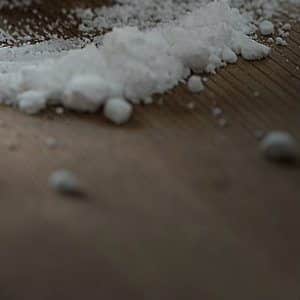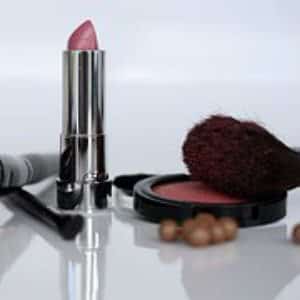The American beauty and personal hygiene market is always introducing new products that promise to work wonders for users. The ingredients used are constantly examined and put through rigorous tests to determine if they are safe for the public, but sometimes, harmful products still end up on shelves. Recently, the medical community and public were made aware that talcum powder may be one of those harmful substances.
Banville Law is glad to provide you with useful information regarding harmful substances to be aware of such as Talcum powder, commonly found in cosmetics.
As one might be able to guess from its name, talcum powder is made of a mineral called “talc” which contains magnesium, silicon, and oxygen. Many household products, including baby powder, facial makeup powders, soaps, deodorants, chewing gum, and other cosmetic products contain this mineral. Manufacturers have favored talc because of its properties which allow it to absorb excess moisture and reduce friction – meaning that it helps keep skin dry and prevents rashes.
Prior to the 1970’s, talc that was mined in its natural form was found to contain asbestos, but since that time, the U.S. Food and Drug Administration has required that all talc be asbestos free. The ban was put into place after researchers performed studies on the miners who collected the naturally occurring mineral. These studies covered workers in multiple countries including the United States, France, Brazil, China, Japan, and Korea.
Ultimately, the National Institute for Occupational Safety and Health reviewed available data and determined that not only is there an actual condition called “talcosis” which causes irritation in the lungs, but that the miners had a higher than normal chance of developing lung cancer. The institute even created a level of acceptable exposure for workers in the U.S.
While miners were still at risk, the thought was that if asbestos was removed that talc could still be safely used by the public. However, even without asbestos, talc may not be as benign as researchers previously thought.

One of the most commonly used form of talc in the U.S. is baby powder. While pediatricians have long disputed the safety of this product because of the damage it can do if an infant inhales the powder, it wasn’t until recently that the danger women possibly face was recognized, despite the fact that research has shown potential harm since the 70’s.
In the United Kingdom in 1971, a group of scientists reported that they had taken multiple ovarian tumors apart and found actual pieces of talc inside of the tumor. In the article they published in the Journal of Obstetrics and Gynecology of the British Commonwealth, the group postulated that if a woman used baby powder for feminine hygiene, the talc could travel up into the reproductive system and cause irritation and tumors.
Eleven years later, a team from Harvard published a separate study which reported that of the 215 volunteers with ovarian cancer involved, almost half used baby powder for feminine hygiene purposes, while of the 215 involved who did not have cancer, only about a quarter applied the powder. Dr. Daniel Cramer, the leader of the group, estimated that if a product containing talc is used in the undergarments, it can increase the risk of developing cancer by 92%.
These certainly weren’t the only studies performed over the past 40 years that showed a link between talc and cancer, and yet, it took women across the country filing lawsuits to bring the risks to national attention.
Today, over 1,000 women have hired defective product attorneys and filed a lawsuit against Johnson & Johnson, alleging that the company failed its customers because it didn’t warn them about the potential risks associated with using baby powder.
The first lawsuit was filed in 2013 by a woman who lives in South Dakota. According to her complaint, she used Johnson & Johnson’s baby powder every day for almost 30 years – then she was diagnosed with ovarian cancer in 2006. She began to do research into what might have caused her illness and was shocked to find that talc had been linked to cancer for quite some time.
Her research made her decide to have her tumors, which were surgically removed, sent to three separate and independent medical experts. Every single expert found particles of talc deeply embedded inside of the tumor they received. Each doctor agreed with the other two – that her cancer had been caused by exposure to baby powder.
This first case went to trial and after months of litigation, the jury determined that Johnson & Johnson was liable for not including a warning of potential cancer risks on the product’s label.
In an interview after the verdict was announced, the plaintiff announced that the company had offered her a $1 million dollar settlement, but she believed that it was more important to make other women aware of the danger they may be in.
Despite her winning verdict, no damages were awarded in this case because of a law in South Dakota which requires the jury to unanimously support the amount.
This first lawsuit was simply the first. While the majority of the more than thousand complaints filed have yet to go to trial or reach settlement, several have seen a successful outcome. Just recently, in February of 2016, a jury in Missouri awarded $72 million in damages to the loved ones of a woman who passed away from ovarian cancer. Just a few months later, a different jury awarded $55 million to a woman who was diagnosed with stage III ovarian cancer.
If you have a history of using baby powder for feminine hygiene and have been diagnosed with a form of ovarian cancer, you should contact a New York defective product attorney as soon as possible to determine if you may be one of the thousands of additional plaintiffs that are expected to file a complaint in the coming months.
Continue reading other stories related to defective products such as: https://banvillelaw.com/defective-door-hurts-man/
